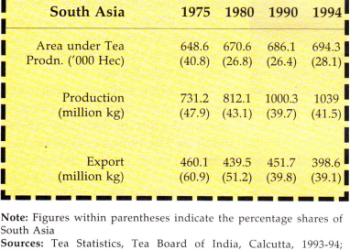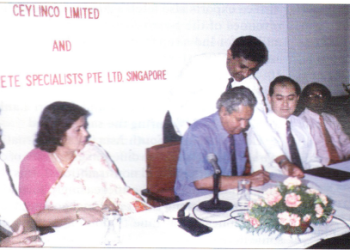Stanley Fernando
It has been reported (Sunday Times, of June 22, 1997) that the Federation of Chambers of Commerce and Industry of Sri Lanka (FCCISL) in association with its affiliated member organization is organizing a series of prebudget seminars reflecting the views, opinions, concerns and suggestions of the private sector. This is a laudable deviation from the normal practice of having post-budget seminars. The FCCISL has invited proposals from affiliated chambers of commerce and industry, professional organizations and individuals to enable these proposals to be analyzed for the consideration of the government.
Tax Forum of Business Today’, I would in accordance with the above invitation suggest a broad based discussion with the Inland Revenue Department on the implementation of the Goods and Services Tax Act No 34 of 1996. It is strongly felt that the tax-paying public has not been sufficiently educated on the methods of enforcement and the requirements for compliance with the provisions of this new tax dispensation. In this connection it is appropriate to draw the attention of the FCCISL and all concerned in the corporate sector to a draconian provision in the Goods and Services Tax Act No 34 of 1996. The relevant provision, Section 48(1) of the Act states as follows:
’48(1) Where a body corporate has not paid any tax on or before the due date, it shall be lawful to proceed under all or any of the provisions of this chapter against a manager, director, secretary or other principal officer of such body corporate, whether such officer is responsible or not for such default, notwithstanding anything in any other written law relating to such body corporate.’
This provision not found in any of the other taxing statutes (Inland Revenue Act, Turnover Tax Act, Stamp Duty Act) nullifies the authoritative judgement of Gratiaen J in M E de Silva vs CIT (53 NLR 280) which affirmed the principle that no person shall be subjected to the drastic provision of recovery of taxes in default, unless such person has been duly assessed to a tax and has failed to pay the tax on or be- fore the date or dates specified in the notice of assessment. This judgement has been followed in the more recent cases of Rajan Phillip vs CIR (Sri Kantha’s Law Reports, Vol 1, 133) and Ramalin vs CIR (1988) (Sri Kantha’s Law Reports, 259)
Section 48(1) of the Goods and Services Tax Act as it stands, enables the Revenue to proceed against a manager, secretary or other employee of a company or any other body of persons to recover the tax assessed on and defaulted by the company or other body of persons, whether such officer is responsible or not for such default a gross abuse of the principle of vicarious liability.
A comparison with Section 146 of the Inland Revenue Act No 28 of 1979 demonstrates how harsh the provisions of Section 48(1) of the Goods and Services Tax Act are. 1690 of the Inland Revenue Act No 28 of 1979 demonstrates how harsh the provisions of Section 48(1) of the Goods and Services Tax Act are.
Section 146 (1) and (2) of the Inland Revenue Act No 28 of 1979 (which are anti-evasion provisions) provide as follows: ‘146 (1): The secretary, manager, director or other principal officer of every company or body. of persons, corporate or un incorporate shall be liable to do all such acts, matters, or things as are required to be done under the provisions of this Act by such company or body of persons:
Provided that any person to whom a notice has been given under the provisions of this Act on behalf of a company or body of persons shall be deemed to be the principal officer thereof, unless he proves that he has no connection with that company or body of persons or that some other person resident in Sri Lanka is the principal officer thereof.
(2) Where an offence under this Act is committed by a company or body of persons, corporate or un incorporate, every person who at the time. of the commission of that offence was the secretary, manager, director or other principal officer of that company or body of persons shall be deemed to be guilty of that of fence unless he proves that the offence was committed without his knowledge and that he exercised all such diligence to prevent the commission of that offence as he ought to have exercised having regard to the nature of his functions in such capacity and to all the other circumstances.”
It will be seen that where the law holds the principal officer of a company vicariously liable for a tax offence committed by a company or body of persons, Section 146 (1) and.
(2) gives the principal officer a defense against the imposition of vicarious liability. Section 48(1) of the Goods and Services Tax Act denies any such defense and holds the principal officer vicariously li able for the default of the company whether or not such principal officer is responsible for the default.’ Section 48(1) of the Goods and Services Tax Act is a harsh aberration of tax law and should not be implemented. Stanley Fernando is a graduate of the University of Ceylon and an attorney-at-law, specializing in Tax law. He has been a lecturer and examiner in Tax at the Sri Lanka Law College, and a visiting lecturer of the University of Colombo.




